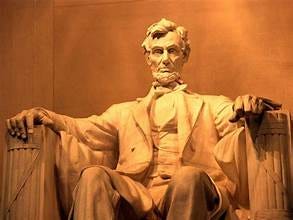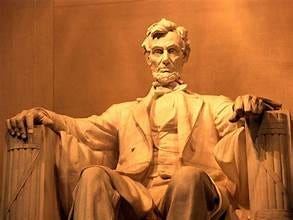One hundred fifty-nine years ago on April 15th, Abraham Lincoln was assassinated. The Civil War was just ending after four traumatic years, and the nation was welcoming peace and looking forward to putting the nation back together. The nation had been nearly torn apart over the issues of slavery and a southern plantation system in which the plantation owners believed they needed slavery to remain economically viable. Of course, the problem with that was that slavery denied both civil and basic human rights to an entire class of people which was antithetical to the very basis of our democracy. The relevance of Lincoln’s assassination still resonates in this nation.
The Issue of Slavery
Not only was slavery acceptable in the United States, but it also allowed every five slaves to represent three political votes for their owners to use. This gave disproportional political power to both the plantation owners and to the states that had slaves.
That taint on democracy and the political implications of the 3/5th rule, eventually led to a political split, with the Southern/slave holding states eventually seceding from the union that had been the United States of America, thus splitting the nation in half and challenging not only the democratic basis of the nation but also its very viability.
The War
The result was a long and bloody war with friends and even families split in their loyalties. The war finally ended with the North being victorious, slavery abolished, and plans being developed to reunite and heal the nation.
Lincoln had held the nation together during all the trials of that war and wanted to put the nation back together without malice. A Reconstruction package had been in the works that would allow the Southern states to reenter the Union and for former slaves to begin to be integrated into society.
The Assassination
But as is often the case, some did not want to accept that new reality and were willing to continue the war if necessary. There was a plot to assassinate not only President Lincoln, but also many of his cabinet members in order to throw the government into total disarray and allow the Confederacy to rise again, and this time win.
Failure of Reconstruction
Lincoln was assassinated but luckily, the other parts of the plot were only marginally successful, so the government continued to be functional even with a Vice President who was very sympathetic to the South. If Lincoln had lived, he would have moderated those in the North who wanted retribution and punishment for the South. But, without Lincoln Reconstruction began to look too punitive to the South. The result was that the planned Reconstruction of the South, was eventually undone, allowing a harsh racism to replace slavery and allowing much of the old racist structure to retain its power in the South and continue as a coherent political force and to operate as a conservative block in Congress. So, the South eventually went back to business as usual with harsh and violent responses to the newly released slaves.
The result was that although Lincoln had held the nation together and moved democracy forward, especially with the end of slavery, his vision and his dream of a reunited nation that could leave racism and rancor behind was quickly killed. His dream of a positive and healing Reconstruction of the South was turned into a nightmare of violent racism. The entire taint of slavery and the concomitant racism on the American vision of democracy simply continued and continues today as institutionalized racism, although its expressions has been modified. In effect, the results of the Civil War were left unclear, allowing regionalism to replace much of what reunification hoped to resolve.
Lincoln’s assassination, like Kennedy’s assassination, is a sad story of segments of our society’s willingness to use guns and violence to prevent the necessary change and growth of our democracy. Those who do not want change will, seemingly, stop at nothing to prevent any such change, continuing to rely on manipulation and even force to achieve their ends.
It still remains to be seen if our nation is not only able, but also willing to change and continue its growth as a democracy in the modern world.






